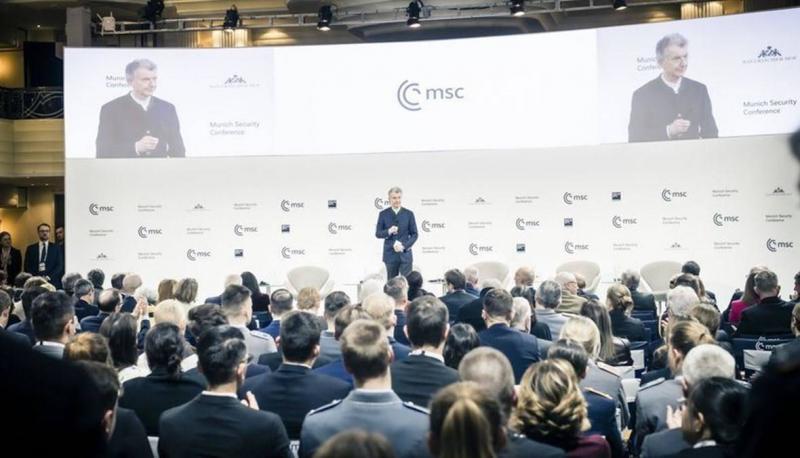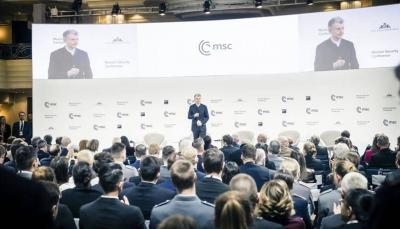Prominent politicians, military officials, and diplomats from around the world are gathering in Munich today for a security conference that will be dominated by the wars in Gaza and Ukraine, as well as concerns about the United States' commitment to defending its allies. German Chancellor Olaf Scholz, U.S. Vice President Kamala Harris, Ukrainian President Volodymyr Zelensky, and other senior officials are expected to attend the Munich Security Conference, an annual global gathering focused on defense and diplomacy.
Israeli President Isaac Herzog and Palestinian Prime Minister Mohammad Shtayyeh are also expected to participate in the conference, which begins today and runs until Sunday at the luxurious Bayerischer Hof hotel in southern Germany. The conference takes place as the conflict in the Gaza Strip between Israel and the Palestinian Islamic Resistance Movement (Hamas) enters its fifth month, with over 28,000 Palestinians and around 1,430 Israelis killed, showing no signs of resolution. This also comes just before the second anniversary of Russia's large-scale invasion of Ukraine.
The conference is likely to address concerns surrounding both wars regarding the potential for their regional expansion. NATO Secretary-General Jens Stoltenberg told Reuters on Wednesday, "The world has become more dangerous." British Foreign Secretary David Cameron mentioned that officials from European countries providing funding to the occupied Palestinian territories, as well as major Arab and Gulf states, would meet on the sidelines of the Munich Conference to begin discussions about the future of Israel and the Palestinian people following a potential ceasefire.
U.S. Secretary of State Antony Blinken is also expected to participate. Israeli Foreign Minister Israel Katz stated that he will visit Germany for the first time to deliver an important speech at the conference, noting that he had previously refrained from doing so due to his background as a child of Holocaust survivors. He said, "I will do everything for Israel's security, to secure our future, and to bring back the hostages."
Zelensky is expected to call for more support for Ukraine at a time when a multi-billion dollar military aid package for Kyiv is stalled in the U.S. House of Representatives. Warnings from European and American officials are increasing about the danger of Russian President Vladimir Putin attacking other countries if his military operation in Ukraine is successful. Organizers indicated that no Russian officials were invited to the conference for the second consecutive year, as they do not appear interested in meaningful dialogue.
The conference is also taking place amid growing doubts about the United States' broader commitment to defending its allies, particularly with the potential reelection of former President Donald Trump. Such concerns have reignited calls in Europe for greater strategic independence. Until recently, only a few countries, especially France, supported this idea, but it is gaining momentum and is likely to be addressed at the security gathering.
Trump, the frontrunner for the Republican presidential nomination, stated last Saturday that he would not defend NATO members who do not spend adequately on defense, causing panic in Europe. The conference will also address other major international issues, such as conflicts in the Horn of Africa exacerbating food insecurity and displacing millions, and relations between the West and China.




